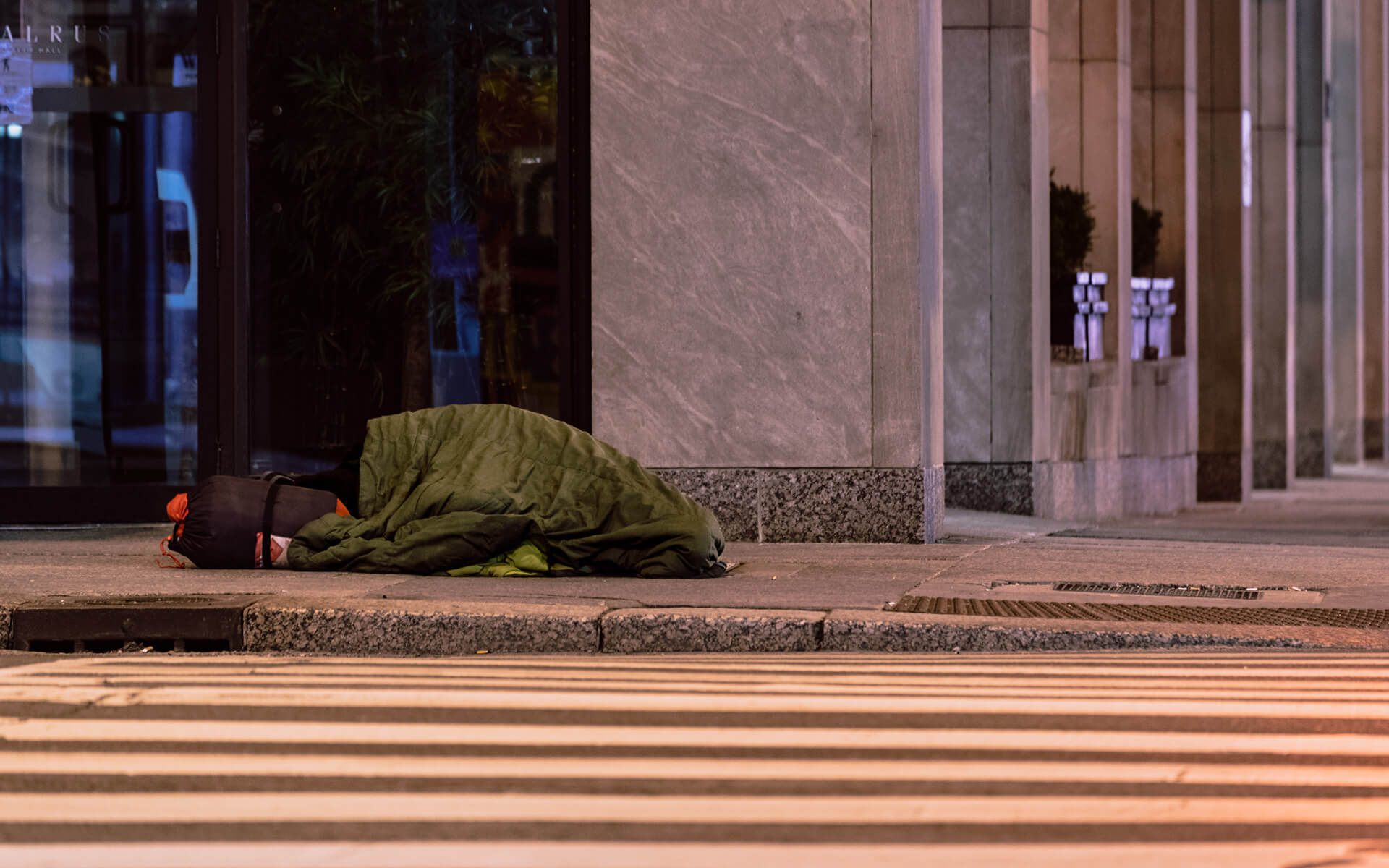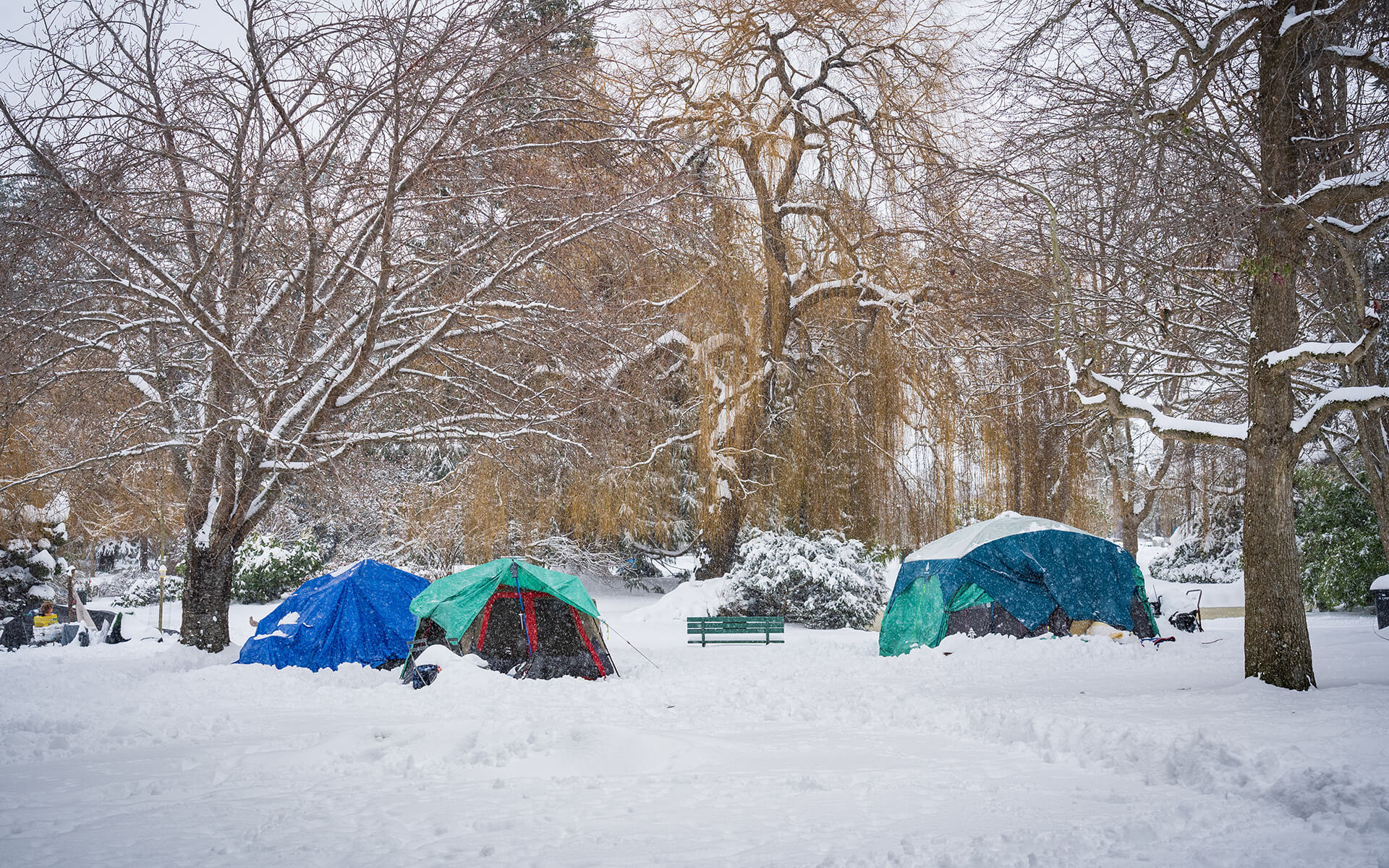Hate crime is a growing concern in Canada. These are crimes motivated by animosity, bias or hate toward some aspect of a victim's identity
Canada, and several other countries, have reported recent increases in hate-motivated violence against unhoused people. However, in Canada, people experiencing homelessness are not considered a protected class, nor does the law recognize them as people belonging to an "identifiable group."
In Canada, hate-motivated crimes are those that target people from "identifiable groups" based on the "prohibited grounds" of race, ethnicity, religion, gender, sexuality, language, age and disability.
Unhoused people don't necessarily fit neatly into one or more of these groups, and that means the hate directed toward them because they are unhoused is often ignored.
Homelessness in Lethbridge
In spring 2022, we interviewed and spent time with 50 unhoused people in Lethbridge, Alta., 34 of whom were Indigenous. Estimates suggest approximately 450 people are unhoused in Lethbridge, most of whom are Indigenous due to historical and ongoing colonial oppression. We asked participants about many things, including how they experienced street life and safety.
Approximately five per cent of Canadians have experienced unsheltered homelessness. This refers to people living in shelters, parks, tent cities or makeshift shelters. In the United States, data shows homelessness has risen to its highest ever reported level.
Our research in Lethbridge shows how poverty—and homelessness in particular—can dramatically increase a person's risk of being a victim of a hate crime.
Put another way, being homeless compounds the risk factors that make people more vulnerable to hate-motivated attacks. We call this the "cumulative risk of hate crime victimization."

Anti-homeless hate crime
Nearly all participants expressed feeling unsafe in downtown Lethbridge, fearing they may be attacked by a group they called the "White Gorillas." Participants described them as a "white hate group" that predominantly targets unhoused Indigenous persons, especially Indigenous women. They also shared that White Gorilla violence was motivated by anti-homeless hatred, meaning the group could attack anyone living on the streets.
According to interviewees, the White Gorillas travelled in vehicles looking for vulnerable persons to attack. Some reported being victimized by the group themselves. Many others knew someone who had been verbally, physically or sexually abused by the group. As one participant stated:
"They come into town. They beat the shit out of people. They take girls in their vehicles, and you know […] they lure them into that truck and take off out of town. Beat the shit out of them, rape them."
Experts describe hate crimes as "message crimes" because of how these attacks instill fear in communities that share the victim's identity. Sociologists call this experience vicarious victimization.
The routine attacks against our participants caused immense stress in Lethbridge's unhoused community. Interviewees explained how they developed strategies to protect themselves. This included hiding, travelling in groups and avoiding the downtown core, especially at night. However, most saw these safety measures as futile due to the challenges of living outdoors and being visibly unhoused.
Some participants also shared that they reported these hate crimes to local police. The officers, they claim, were not interested in protecting victims nor investigating these attacks.
It is unclear whether these horrific acts were perpetrated by a singular, organized group. It is possible that they were committed by various persons who are unconnected to each other. However, the consequences of this victimization for people experiencing homelessness remain the same.
Anti-homeless violence and vicarious victimization introduce further challenges for unhoused people, as they limit their movement and access to social services out of fear of being victimized.

What can we do?
The Canadian Human Rights Commission has called for recognizing unhoused people's human rights by acknowledging anti-homeless violence as a hate crime.
Current hate crime legislation does not list unhoused people as a protected class because homelessness is not an "immutable characteristic." This is despite the fact that some protected classes are also not static. For example, people can change their religion. Experiences with disability can also change over time. Thus, focusing on immutable characteristics is arguably based upon flawed logic.
Many unhoused people are an identifiable group vulnerable to attack precisely because of their unhoused status. Being unhoused makes Indigenous people more vulnerable to hate-motivated violence, especially Indigenous women.
This is a textbook example of what sociologists call intersectionality, referring to how discrimination increases when a person is a member of multiple oppressed groups.
Governments can address the intersectional oppression of this violence by implementing the recommendations of the National Inquiry into Missing and Murdered Indigenous Women and Girls and the Truth and Reconciliation Commission of Canada.
Anti-homeless violence should be designated a hate crime and people experiencing homelessness must be considered and treated as a protected class under Canadian law. Protected status may pressure cities to address housing insecurity and encourage law enforcement to track and investigate anti-homeless violence. However, improving public safety will not protect unhoused people from victimization.
The best way to protect unhoused people from the violence they face is to provide them with safe and permanent housing. The government priority must be to provide safe housing and services to reduce vulnerability. Governments must also work to decrease biases against people experiencing homelessness that increase their risk of hate crime victimization and make it easier to ignore their suffering. ![]()
This article is republished from The Conversation under a creative commons license. Read the original article on their website.